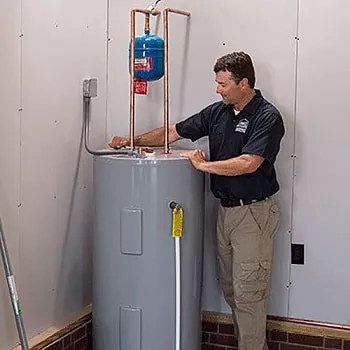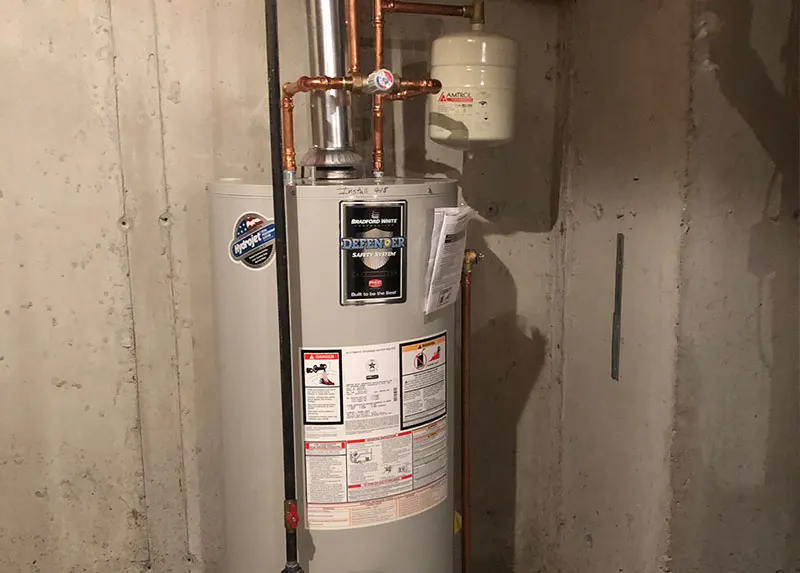Comprehensive Drain Cleaning Services to Promote Healthy Plumbing
Comprehensive Drain Cleaning Services to Promote Healthy Plumbing
Blog Article
Complete Guide to Water Heating SystemInstallment and Substitute
Comprehending the intricacies of hot water heater installation and substitute is essential for house owners seeking to make sure performance and reliability in their warm water supply. From picking the appropriate type and size to implementing a seamless setup procedure, numerous variables need to be taken into consideration to stay clear of usual pitfalls. This guide will certainly provide you with the required steps and insights to navigate the complexities of this home enhancement job, while additionally stressing critical maintenance techniques that can prolong the life of your system. As you explore these facets, you may find yourself reassessing your current configuration and determining areas for improvement.
Kinds Of Hot Water Heater
When taking into consideration hot water heater installment and substitute, it is necessary to recognize the various kinds of hot water heater readily available in the market. The most typical kinds consist of container hot water heater, tankless water heating systems, heatpump hot water heater, and solar water heaters.
Container water heating units are typical systems that store a particular quantity of warm water, making them conveniently offered when needed. They are usually cheaper in advance yet may incur greater energy expenses over time due to warmth loss. On the other hand, tankless hot water heater offer warm water on demand, removing the need for storage space. They are power effective and can conserve space, however their initial expenses are generally greater.
Heat pump hot water heater make use of electricity to move heat from the air or ground to heat water, using considerable energy savings yet calling for more room and particular installation conditions. Solar water heating systems harness solar energy to heat water, offering an environment-friendly choice with potential long-term cost savings, although they frequently need a backup system for cloudy days.
Understanding these options makes certain notified choices pertaining to setup and substitute, satisfying certain requirements and choices.
Selecting the Right Dimension
Picking the proper size for a hot water heater is crucial to guarantee optimum efficiency and performance. A system that is too small will battle to satisfy household needs, resulting in irregular hot water availability and boosted energy intake. Conversely, an extra-large hot water heater can result in unneeded power waste and higher utility costs.
To figure out the right dimension, consider the household's peak warm water usage. This can be determined based upon the number of passengers and their typical warm water needs. As an example, a family of four may require a water heater with an ability of 50 to 80 gallons, depending upon the usage patterns, such as simultaneous showers and laundry.
Furthermore, assess the recovery price, which measures how swiftly a heating system can renew warm water after it has been utilized. For tankless versions, concentrate on the circulation rate, gauged in gallons per min (GPM), to guarantee it meets the home's synchronised need.

Installation Refine Overview

Next, the old system should be disconnected and gotten rid of, taking care to adhere to regional codes and guidelines pertaining to disposal. Once the old system is out, the new water heating unit can be placed in area. This step entails connecting the water system lines, guaranteeing that all fittings are safe and secure and leak-free.
After developing water connections, it's important to attach the power supply, whether electric or gas, complying with the manufacturer's directions diligently. When all links are made, the system ought to be loaded with water, and the power can be turned back on. Lastly, it is necessary to look for leakages and official site guarantee the water heating unit is operating correctly before finishing the installment procedure.
Common Setup Errors

An additional constant mistake is ignoring to adhere to local codes and guidelines. Falling short to stick to these standards can not only lead to security dangers yet might also result in costly fines or the requirement for expensive reinstallation.
Wrong plumbing links are additionally a widespread blunder. Falling short to safeguard links or utilizing the wrong kind of installations can lead to leaks and water damages. In addition, neglecting the significance of an appropriate drain frying pan can lead to considerable water damages if leakages do happen. Last but not least, poor insulation of pipelines can bring about warmth loss, minimizing effectiveness. By preventing these common installment mistakes, homeowners can guarantee their water heating unit operates securely and successfully, making the most of performance and long life.
Maintenance Tips for Durability
Proper maintenance of a water heater is important for its long life and optimal efficiency. Routine evaluations and maintenance can protect against expensive repairs and prolong the appliance's life-span. Begin by checking the temperature level setting; it ought to typically be established between 120 ° F and 140 ° F for ideal energy effectiveness and safety.
Every six months, purge the storage tank to eliminate sediment accumulation, which can harm heating effectiveness and create rust. To do this, shut off the heating unit, attach a hose pipe to the drainpipe shutoff, and let the water run up until it is clear.
Anode rods must be inspected every year and changed when they are corroded. These rods assist protect against storage tank corrosion by drawing in harsh components in the water.
Additionally, inspect the pressure alleviation shutoff consistently to ensure it is functioning properly. This shutoff is crucial for preventing excessive pressure accumulation within the container.
Finally, take into consideration setting up a professional maintenance check every few years for detailed inspections and servicing. By adhering to these maintenance ideas, home owners can dramatically boost the effectiveness, safety and security, and life-span of their hot water heater, making certain dependable hot water for many years to come.
Final Thought
In verdict, appropriate installation and maintenance of water heating systems are important for ensuring performance and durability. By comprehending these essential elements, home owners can achieve a reliable hot water supply while minimizing prospective concerns associated to water heating system operation.
Comprehending the read this intricacies of water heating system installation and replacement is critical for property owners looking for to make certain efficiency and integrity in their hot water supply.Storage tank water heating units are typical systems that store a certain quantity of hot water, making them readily available when required. In comparison, tankless visit homepage water heating units give hot water on demand, eliminating the need for storage. Selecting a water heater that is either also small or too big can lead to inadequacies, resulting in inadequate warm water supply or excessive energy consumption.
By comprehending these essential aspects, property owners can accomplish a reputable warm water supply while decreasing potential issues related to water heater operation. plumber Denton.
Report this page